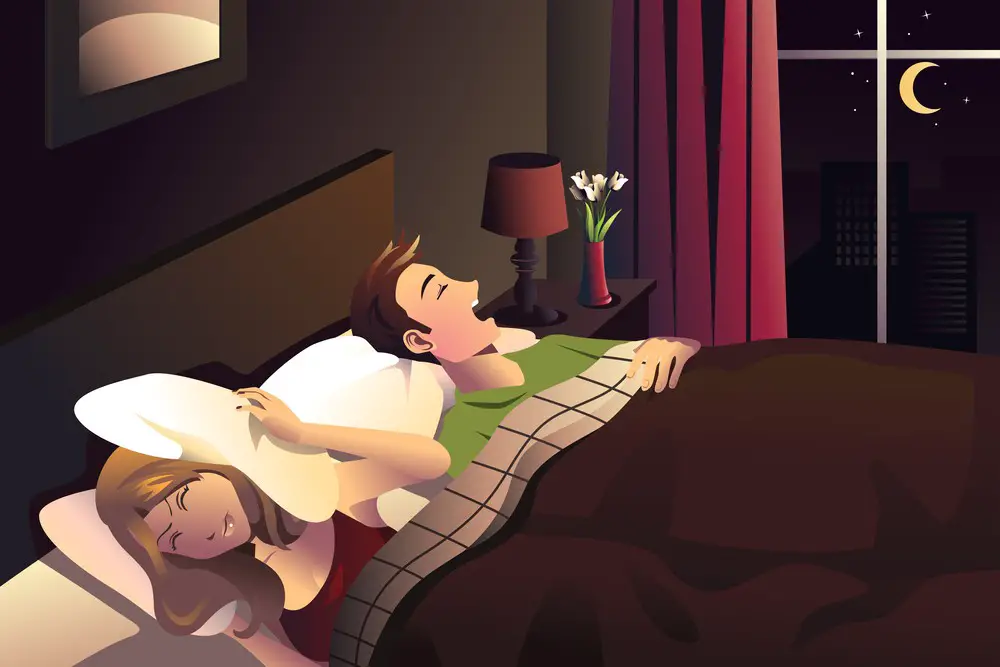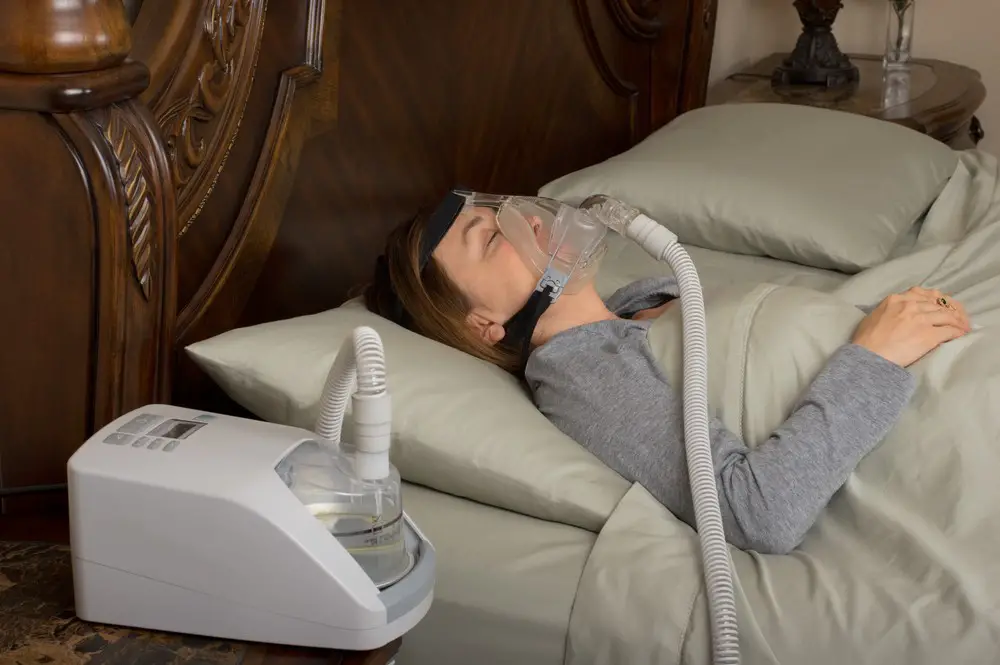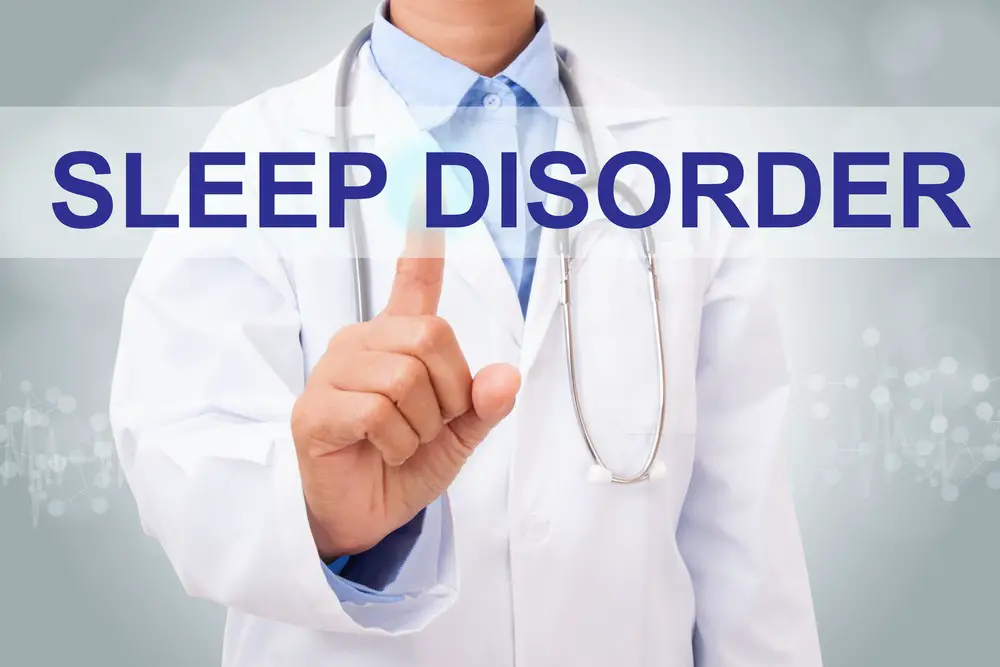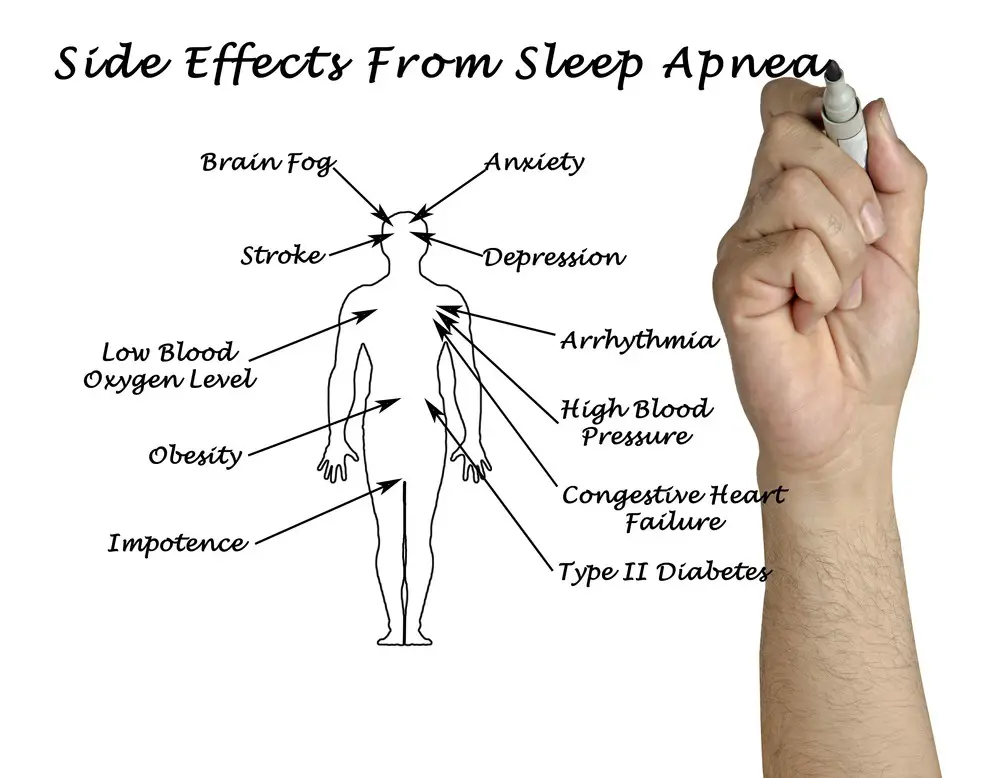As a BetterHelp affiliate, we receive compensation from BetterHelp if you purchase products or services through the links provided
According to the National Alliance on Mental Illness, anxiety disorders are the most common mental illness in the U.S., impacting 40 million adults. But what many people don’t know is that there is a strong link between anxiety and sleep apnea. Research has shown that around 60 percent of people with sleep apnea also suffer from an anxiety disorder.
If you’re one of those people, it’s essential to be aware of the connection between these two conditions and take steps to get treatment for both. Here’s what you need to know about anxiety and sleep apnea…
What is sleep apnea?

Sleep apnea is a common sleep disorder that affects millions of people around the world. The condition is characterized by repeated episodes of breathing pauses during sleep, often leading to snoring and interruptions in the night’s rest.
While the exact cause of sleep apnea is still not fully understood, it appears to involve disruptions in the communication between the brain and chest muscles during sleep. This can lead to feelings of anxiety and fatigue, leading to poor general health.
You must see a doctor for diagnosis and treatment if you think you may suffer from sleep apnea. Sleep apnea can be effectively managed with proper medical care, and its effects on your health are minimized.
How is sleep apnea linked to anxiety?
Anxiety and sleep apnea are often spoken about in the same breath – and for a good reason. Sleep apnea is when a person’s breathing is constantly interrupted while they sleep, leading to higher anxiety levels. This is because the disrupted breathing disrupts normal brain function, resulting in anxiety. People who suffer from sleep apnea also find their sleep quality poor, which can lead to poor mental and cognitive function.
Studies have found that people with sleep apnea are 2 to 5 times more likely to develop anxiety disorders. In addition, sleep apnea increases the risk of developing mood disorders such as depression and bipolar disorder in later life. It is essential to know the link between anxiety and sleep apnea.
Anxiety and sleep apnea symptoms
Anxiety and sleep apnea are very different conditions, but they can often co-occur. People with anxiety may be more likely to experience sleep apnea symptoms, such as loud snoring, gasping for air, and waking up frequently at night. Sleep apnea can also cause anxiety, as the fear of not being able to breathe can lead to anxiety attacks.
Sleep apnea symptoms
Symptoms of sleep apnea can include:
- Loud snoring
- Gasping for air
- Waking up frequently during the night
Sleep apnea can lead to poor concentration, fatigue, and mood swings, among other issues.
Anxiety symptoms

Anxiety can show itself in a wide range of symptoms, but some of the most common and noticeable signs are:
- Feelings of worry, stress, or unease
- Difficulty concentrating
- Muscles tension
- Sleep problems (insomnia, sleep apnea)
- Sweating
- Heart palpitations
- Shortness of breath
- Dizziness
- Nausea
If untreated, anxiety can become uncontrollable and lead to more severe complications, so if you are experiencing anxiety symptoms, don’t hesitate to seek help from a mental health professional.
Can anxiety cause sleep apnea?
Anxiety and sleep apnea are often linked. Research has shown that anxiety can worsen sleep apnea symptoms, including restlessness and difficulty sleeping through the night. If you suffer from sleep apnea, getting treatment and managing your anxiety levels is essential. Treatment for both conditions may require different strategies, so it’s essential to consult with a specialist. Anxiety and sleep apnea can be a complex cycle to break, but with the proper treatment, you can manage both conditions and get on the path to better health.
What are the effects of sleep apnea?
Sleep apnea can have a range of effects on your health, both mental and physical. The condition is linked to higher anxiety levels and depression, and mood disorders. Sleep apnea can also lead to poor concentration, fatigue, and daytime sleepiness.
In addition, sleep apnea is a risk factor for developing heart disease, increasing the risk of a stroke, and high blood pressure. If you suffer from sleep apnea, getting treatment to minimize the effects on your health is essential.
How can sleep apnea be treated?

Even though there is no cure for sleep apnea, there are still treatments that can help manage the condition. A standard treatment option is using a machine that provides CPAP (Continuous Positive Airway Pressure) therapy. This therapy helps keep the person’s airway open during sleep, allowing you to get the rest you need.
Other treatment options can include oral appliances or surgery. If you think you have sleep apnea, you must speak with a doctor about your situation. You can get the quality sleep you need to improve your anxiety symptoms and overall health with proper treatment.
Summarising anxiety and sleep apnea
Sleep apnea is a common condition that can lead to anxiety. Talking to your doctor about ways to improve your breathing and reduce the risk of anxiety is essential. Prevention is critical – ensure you get enough sleep every night and avoid activities that may increase your risk of sleep apnea. There are treatments available for sleep apnea that may help reduce anxiety symptoms. Don’t hesitate to ask your doctor about what options are available to you. With the proper treatment, you can get a good night’s sleep and reduce your anxiety.

Frequently Asked Questions
This site contains affiliate links to products. We will receive a commission for purchases made through these links.



